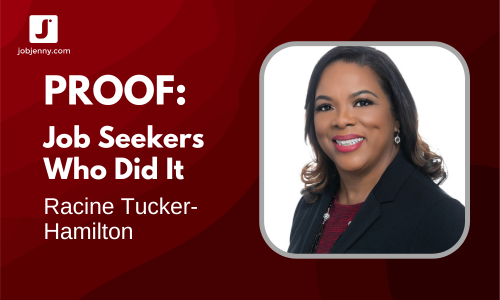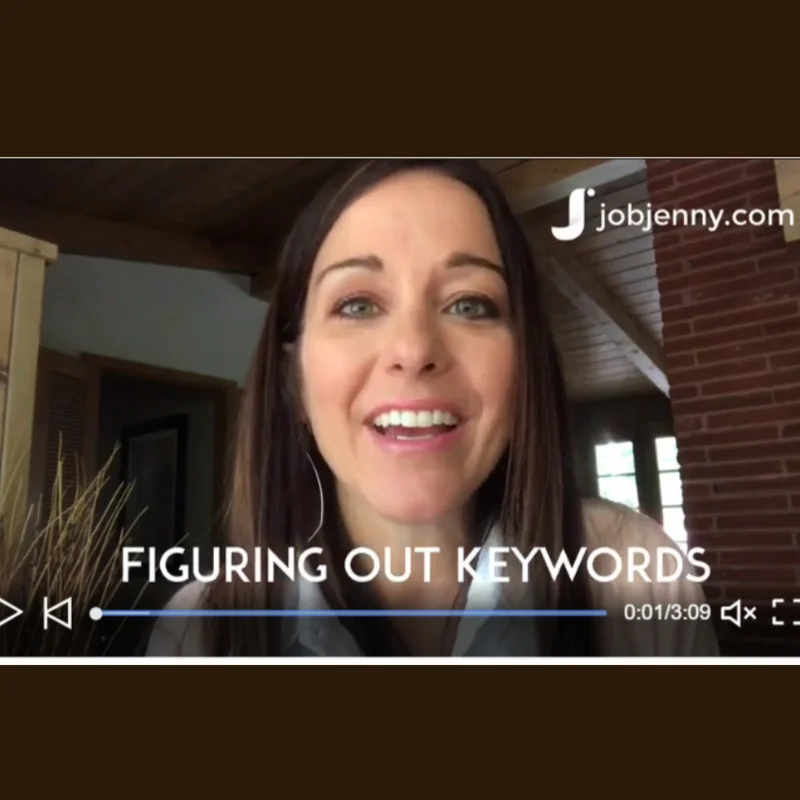How to Shift Your Resume When Shifting Your Career
Resume writing is (so … motherloving …) hard, even for those navigating the most straightforward of circumstances. It can be downright confounding when you're pivoting into a new industry or role.
How do you ensure that your messaging aligns with your new goal? How do you compete with people who will surely make perfect sense on paper?
(Don't you just hate those people?)
These are important questions because, in the initial scanning stage of recruitment, no one cares if you’re super trainable or one hell of a nice guy or gal. No one is going to connect the dots between "what you've done" and "what you want to do" and make deductions on your behalf.
They just want to see how you make sense.
How do you pull this off? How do you show the gatekeepers that, even if you haven't spent 40-leven years doing that thing you want to do in your next job, that you're still going to be amazzzzzing at it?
There are actually a number of strategies you can (and should) deploy when you're working to attract a new audience and land in a new career field. Here are a few important ones.
4 ways to shift your resume when shifting careers:
1. Use Your Summary to Your Best Advantage
First, if you don't have a Summary at the very top of your resume, drop everything and create one. This is, arguably, the most valuable real estate of your entire resume. This is the section that the reviewer sees first. It's the section that enables you to spell out very quickly and succinctly who you are, and in what you specialize.
You should construct your Summary with your next job or employer top-of-mind. Study job descriptions that interest you and figure out what they want or need you to be good at. Assuming you are good at those things, make that crystal clear in the Summary section.
You can also create a bullet point within your Summary that shows how your experience, skills and aspirations all add up to make you an incredibly relevant candidate for that new field ... even if your career history doesn't make this super obvious at face. Again, it's your job to connect the dots for the reviewer on how you make sense. You have a perfect opportunity to do this in your Summary section.
Need help crafting a Summary? Right HERE.
2. Highlight Any Directly Relevant Stuff You're Doing
Let's say you're a mechanical engineer. You've also been working as a volunteer web designer for a nonprofit that means the world to you. It's an intense, but highly rewarding role -- and it's one that's made you realize that you'd really, truly love to work in web design as your day job. How do you handle this on your resume?
I'd strongly consider listing the volunteer position right in your Professional Experience section, as if it were a paying job. There's nothing unethical about listing a job that you do for free as a job. It's especially OK when you need it to show the reviewer how and why you line up for the web design jobs that you start pursuing.
Let's face it, few are going to hire a mechanical engineer to serve as their next web designer ... unless they can see right up front that you've actually been doing this work.
3. If Advantageous, Pull Your Education to the Top
Here's another great (and common) example: What if you are that same mechanical engineer, but this time you're hell bent on becoming an accountant. (Crazier things have happened, people. Stay with me on this.) So, you've gone back to school to get your accounting certificate and now you're ready to start actively pursuing bookkeeping or general accountant roles.
What do you do now, assuming you don't yet have any direct accounting experience?
Pull the Education section up before the Professional Experience section. This way, the reviewer sees right away that you've got a fresh accounting degree. It'll make a lot more sense to them that you're applying for bookkeeping roles if they see your accounting education before they jump right into the "mechanical engineer" stuff about you.
4. Don't Rely 100% on the Resume
You read that correctly. Certainly, you need to do everything you can to make yourself make sense on paper when changing jobs. However, when you're embarking on a big change, you simply can't count on the resume to pull the entire weight of your job search. You may very well need opportunity to sit down with a decision maker and say flat out, "I know you might be wondering why a mechanical engineer is applying for your web designer role. Allow me to explain..."
Given this, I encourage every career pivoter to place a strong emphasis on proactive outreach and networking as part of your overall strategy. The more opportunities you have to sit down directly with influencers in your desired field, or at companies of direct interest, the better.
Nail the resume. Nail the networking.
WANT MORE HELP AS YOU SHIFT YOUR CAREER?
How to Make a Career Pivot is an eBook designed to help you evaluate a potential career pivot then build and activate on a plan that will take you step-by-step from today to your successful start in that brand new role or profession.
Through this resource you'll learn how to:
Evaluate your idea and narrow the definition of your ideal next job
Build a career change strategy, set tangible milestones, and find regular time for this important work
Stay organized and focused on the activities that will accelerate your process the most
Update your resume and LinkedIn profile so you make sense to your target audience
Create a cover letter that enables people to see right away why you're the perfect candidate for the jobs you want the most
Enlist the help of people you know -- and meet new people in your desired career field
Deal with those moments of fear and self-doubt that are part and parcel of this process
Interview like a pro (with specific tips on how to answer the "Why the change?" question) that will surely come up
Negotiate a solid offer, and prepare for a smooth transition
Make the absolute most of your first 90 days in your new job or career
You can view the table of contents HERE
Better yet, we’ll give you $15 off the thing to make it an easy HECK YES. (Simply use promo code PIVOTKIT at checkout.)











